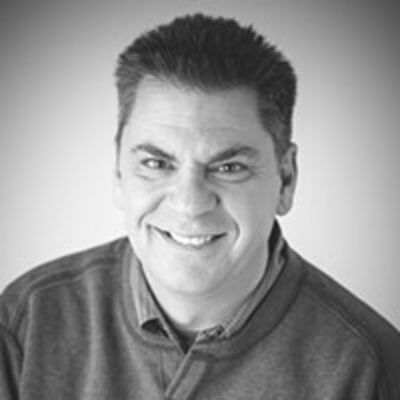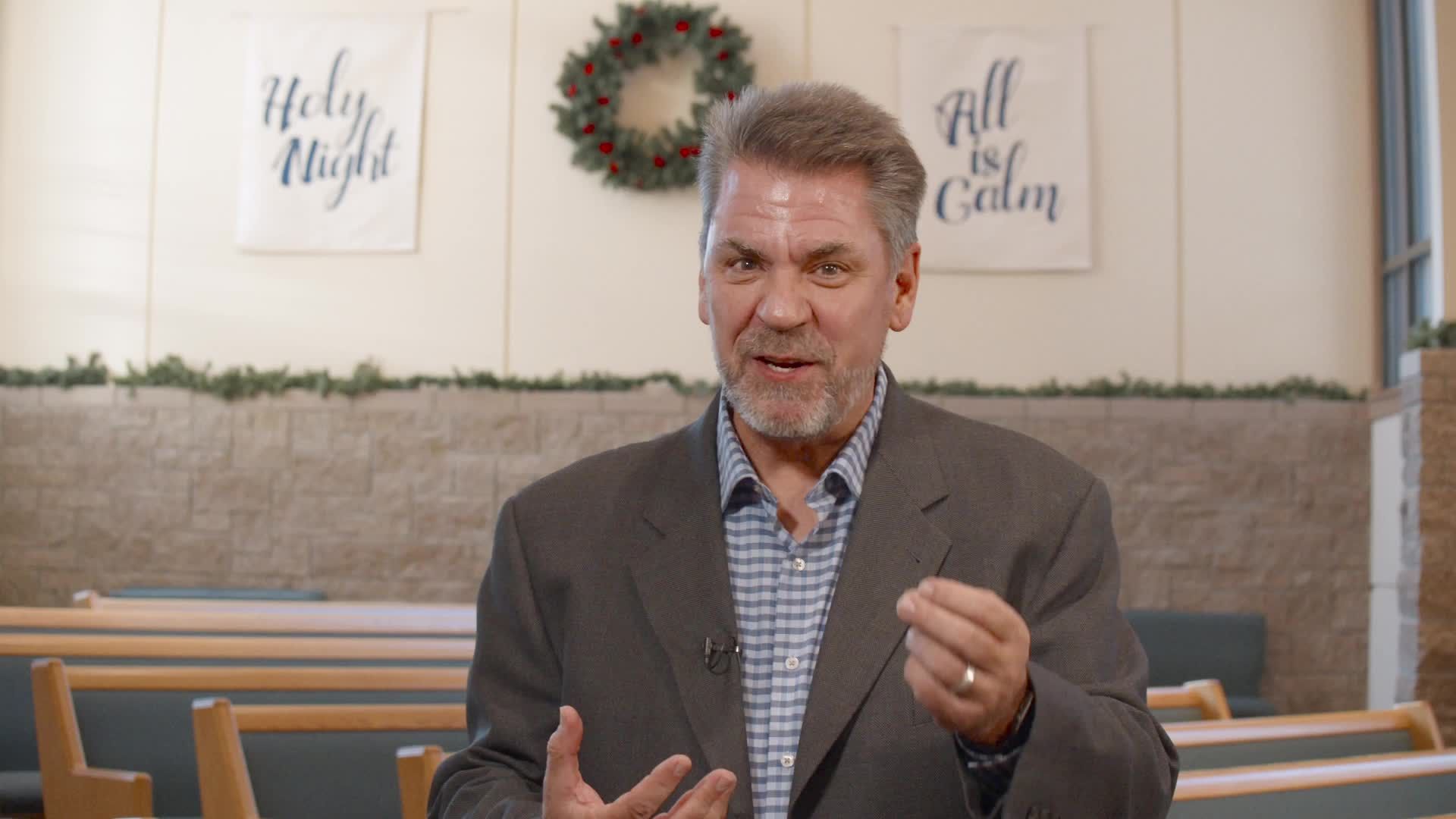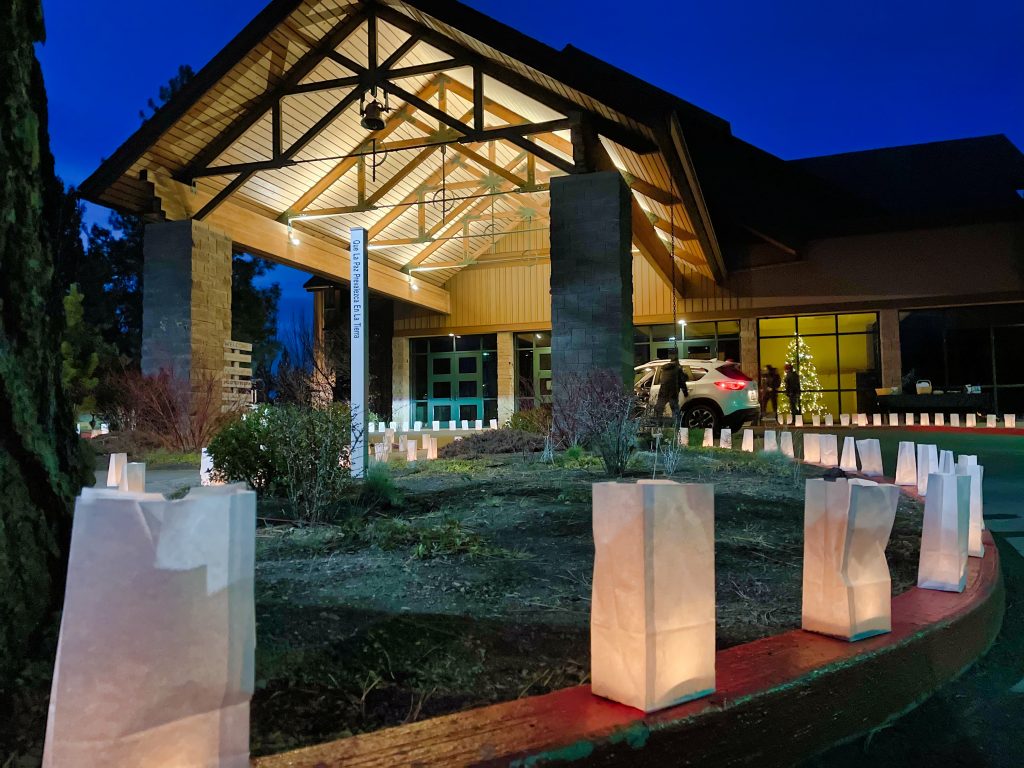Dec 11th, Strengthening The Light In One Another, with Rev. Dr. Steven Koski
Rev. Dr. Steven Koski
Other Articles in:
Dec 11th: Strengthening The Light In One Another, with Rev. Dr. Steven Koski.
I was writing a sermon in a coffee shop, eavesdropping on a conversation happening at the table next to me. They were complaining about the secularization of Christmas and what they said the new need to put Christ back into Christmas. Now, sitting two tables over was a man who clearly had slept in the freezing cold overnight. He was hunched over, tightly gripping a cup of coffee, as if he hoped it’s warmth might somehow find a way to the chill in his bones. I thought to myself, if you’re hoping to find Jesus to put Christ back into Christmas, he’s right there, tightly gripping his coffee, trying to get warm.
Jesus said in Matthew 25, when you care for those who are struggling, you’re caring for me. Maybe the best way to put Christ back into Christmas, or to keep Christ in Christmas, is to do our best to reflect the Christ of Christmas. I asked the man tightly gripping his coffee, if he wanted a company and if I could buy him something to eat. He politely declined my company, but would be really grateful for something to eat. And the people at the table next to me also complained about political correctness and how silly it was to have to say Happy Holidays instead of Merry Christmas.
Now I too am a passionate follower of the one born in a manger. I really doubt that Jesus, jesus who welcomed the outsider, who welcomed the excluded to his table. Jesus, who made the Samaritan the Samaritan, the despised and hated other, made the Samaritan the hero in the Good Samaritan story. Jesus, who emptied himself to be the servant of all. I seriously doubt that Jesus would be offended if we say Happy Holidays instead of Merry Christmas.
We don’t need to protect Jesus. Our job is to do our best to be like Jesus. Jesus would have been more interested in, in creating a culture of, of sacred encounters with those who have a different faith tradition or no faith tradition than fostering a culture of judgment and confrontation. I mean, after all, Jesus is the one who said, do unto others as you would want them to do unto you. So maybe keeping Christ in Christmas is exhibiting tolerance, kindness, generosity towards our neighbors of other faith traditions, or no faith traditions.
Father Richard Rohr said, when a church or anyone defines itself by the exclusion of others, it is always wrong. It’s avoiding our only vocation as Christians, which is to be the Christ, to live as the heart of Christ, to reflect the light of Christ. The only thing Jesus excluded, he said, was exclusion itself.
So whether we say Merry Christmas or Happy Holidays really doesn’t matter nearly as much as the spirit of Christmas. And whether people see something of the heart of Christ in us.
And frankly, being a reflection of the Christ of Christmas is urgent right now, as hateful rhetoric and hate crime is rising at an alarming rate, I feel a need to say something I honestly wish I didn’t have to say. But our Jewish siblings are feeling vulnerable, threatened, scared. There has been a steady rise in antisemitism and antisemitic acts. Hateful, hateful, hateful rhetoric is being given a public platform. This is not just a Jewish issue.
This is an issue for all of us, because we’ve seen this before. Some of our Jewish siblings are saying that for them, it feels like the 1930s that never again feels like now. I’m reminded of what Pastor Martin Niemöller wrote in 1945. He wrote, first they came for the socialists, and I did not speak out because I was not a socialist. Then they came for the trade unitists, and I did not speak out because I was not a trade unionist.
And I want to add to his words just a little bit for today. Then they came for the LGBTQ plus community, and I did not speak out because I’m not part of that community. Niemöller goes on, he said, Then they came for the Jews, and I did not speak out because I was not a Jew. Then they came for me, and there was no one left to speak for me.
The Holocaust, Auschwitz, did not start from gas chambers.
It began with hateful words, stereotypes, prejudice, and escalated to violence.
The best way to keep Christ in Christmas is to make sure wherever hate speaks, love speaks louder.
I think Jesus would be absolutely delighted that we share worship space at First Presbyterian with the Jewish congregation Temple Beth Tikvah, and that Rabbi Johanna has her office and teaches classes on the Torah in our building.
The Jewish child who was born in a manger in Bethlehem, would desire for us to be in solidarity with our Jewish siblings at a time like this. I encourage you reach out to your Jewish neighbors, make sure they’re okay, write a note of support and care to our Jewish siblings who are part of Temple Betikva. I mean, we’d be happy to deliver your message on your behalf.
Maybe one of the best ways to put Christ back into Christmas this year, particularly this year, is to honor our Jewish roots and find a way to be in solidarity with our Jewish siblings. What we share in common in these dark days is a yearning for light.
Hanukkah, Chanukah is an eight day Jewish festival of lights celebrating the triumph of light over darkness that begins at sundown next Sunday, December 18, and then continues through Monday, December 26. Hanukkah recalls the story about the Maccabees, fierce Jewish warriors who had long ago fought a great battle to defend the Jewish people from attack, bravely fighting until all their provisions had run out. Even the eternal lamp over the altar in the synagogue ran out of oil. The eternal lamp was never allowed to go out. It’s burning presence meant that God’s spirit lived among the Jewish people, and everyone feared that if the lamp went out, God would abandon them and they’d be lost.
Miraculously, the lamp continued to burn for eight days without oil to feed it, and the Maccabees triumphed over the enemies. Hanukkah is about the miracle of the light. On the first day of Hanukkah, at sunset, our Jewish siblings light a candle, and then another candle is lit for eight days, recalling the eternal lamp that continued to burn for eight days without oil to feed it. I want to share a story Rachel Naomi Raymond tells and in her book My Grandfather’s Blessings, about a conversation she had about Hanukkah with her grandfather, who was a rabbi. Every afternoon, she stayed with her grandfather after school, drinking tea, eating cookies until her mother could pick her up after work.
And here’s how Rachel tells the story. She says my grandfather told me, in dark times, people strengthen their hope by telling each other stories about the light. The story of the Maccabees is very old, but it’s not the oldest story about darkness and light. And she said that. My grandfather took me into his study and opened a drawer in his desk and lifted out a menorah he had brought with him from Russia.
It once belonged to his father, my great grandfather. He took out a box of wooden kitchen matches and a box of candles, and he laid them on his library table. And the candles were large and white. They will burn through the night until the sun rises, he told me, and handing me one of these candles to hold, my grandfather then put a single candle into the great menorah. Tonight is the first night of Hanukkah, he said.
And so we will light one candle. And Rachel continues. My grandfather then opened his Bible to the first page. He told me the oldest story about darkness and light is the story of the beginning of the world. And then my grandfather began to read in Hebrew and translated it into English for me.
In the beginning, darkness was over the waters, and the Spirit of God moved in the darkness like a great wind over the face of the waters. And God said, Let there be light, rachel said. She looked at her grandfather, and his face was shining with the power of those words. And she said, my grandfather said, this is how the world begins in the Shema. That’s what he called me.
The Shema. Life and all of its blessings begins with God’s gift of light. And Rachel continues. My grandfather said, Now I will turn out the lights, and there will be darkness like there was in the very beginning. And we’ll see what it’s like to receive the gift of light.
Now, I was afraid of the dark, and the thought of turning out all the lights was really scary. So I said, Will you stay right here with me in the dark, Grandpa?
Of course, Nashumallah, he replied. I will be here and God will be, too. Tell me when you’re ready. I nodded, and my grandfather reached behind him and turned out the lights. Now, the old study was a room without windows, lined floor to ceiling with books.
It was very dark. After a minute or two, my grandfather struck a match and he lit the candle. The candle that I was holding tightly. It didn’t give much light, and I could barely make out the menorah on the table. And the rest of the room was filled with shadow.
And I held onto my candle tightly.
And then my grandfather, pointing to the single candle in the menorah, he told me to light it with my candle.
And tomorrow, my grandfather said, tomorrow we will light another one.
Rachel goes on. She says, the next afternoon, after our tea, we sat together in the darkness again. This time, my grandfather placed two candles in the great candlestick. And when he lit my candle that I held tightly again, I carefully lit both candles from its flame. First one and then the other.
And we sat and we watched the two candles burning. We sat there for a long time. We did this every day for a week. As the days went by, I lit three and then four candles until on the final day, I lit all the candles with my candle. And the room was filled was filled with light.
I sat back. I looked at the great menorah with all of its candles burning.
It was so beautiful, Rachel said. It was so beautiful that my heart ached and tears filled my eyes. It’s beautiful, Grandpa. Ah, yes, said my grandfather.
But God’s menorah is even more beautiful than Hashimalah. God’s menorah is made of people, not of candles.
Rachel said. My grandfather told me the story of Hanukkah says that God’s light burns in the darkness even without the oil. And it is so. That is one of the miracles of the light. But there’s more.
There is a place in everyone that can carry the light. God has made us this way. When God says, Let there be light in the shamala, he’s speaking to you and to me. God is speaking to all of us personally. God is telling us what is possible, how we might choose to live.
But in the Shimla, one candle alone one candle alone does not do much in the darkness.
And then Rachel concludes her story, saying, my grandfather looked at me with the most tender and gentle eyes and he said to me, nashimala, God has not only given us the chance to carry the light, god has made it possible for us to kindle and strengthen the light in one another, passing the light along.
This is the way that God’s light will shine forever in this world.
Friends, the Gospel of John the Gospel of John describes the birth of Jesus this way the light shines in the darkness, and no amount of darkness can extinguish the light. The amazing claim of Christmas is that in the birth of that child, god lighted a candle in the midst of the darkness of human history with a promise, no amount of darkness can extinguish the light of God’s love.
Maybe the best way to celebrate the gift of that light is to honor, kindle and strengthen the light in others, especially our Jewish siblings and all others who are the target right now of hate and prejudice.
Maybe the question we should keep asking ourselves, and keep asking ourselves isn’t how to keep Christ in Christmas, but whether or not people see the light of Christ in us.
May it be so.


